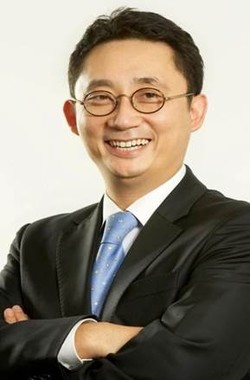Under the former Moon Jae-in administration, the Korean Medical Association (KMA) collided with the government on almost every health issue.

Defying the government’s plan to establish a new public medical school to increase doctors at state-run hospitals, medical school students even refused to take the state medical licensing exam. At the center of the conflicts was so-called “Moon Jae-in care,” which aimed to enhance national health insurance coverage.
It is hard to predict whether these collisions will continue under the Yoon Seok-yeol administration or how the new government's inauguration will affect the medical community.
However, we can get some clues by looking at key tasks earlier announced by Yoon’s transition team.
The new government’s health policy tasks include expansion of public infrastructure for infectious diseases and essential medical care, formation of an innovative ecosystem for pharmaceutical and medical technologies and a mega fund supporting it, utilization of healthcare information through digital technologies, smart health management at community clinics, the introduction of telemedicine, revision of the health insurance premium system, and expansion of government support for health insurance.
We will have to see how the new government will implement these policies.
In a broad aspect, the tasks are either revisions or supplements of the Moon government’s policies.
Thus, there is a possibility that the Yoon government and the medical community could confront each other on several issues.
First, the new government has not commented on Moon Jae-in Care, meaning it could leave it as an implicit premise.
Regarding Moon Care, the medical community had demanded that the government raise reimbursement for medical services and expand government support for health insurance financing. This is because doctors thought the Moon Care policy was “based on the sacrifice of the medical community.”
If the new government revises the health insurance payment system based on income, the government income from health insurance premiums will decrease inevitably. In addition, although the new government has pledged to expand government support for health insurance financing, it will not be easy to provide financial support to reorganize insurance premiums or expand insurance coverage due to budgetary limitations.
Second, the new government may face doctors’ opposition to increasing the number of medical school admissions, which will help secure more physicians to deal with essential healthcare and infectious diseases. During the previous administration, medical school students were so opposed to this that they refused to take the state medical licensing exam. Whether the new government could implement this policy without increasing admissions to medical universities or persuading doctors to push for this policy effectively is questionable.
Third, the medical community will not be able to monopolize the process of digitizing and using healthcare data and expanding smart health management and telemedicine. So, there could be social conflicts between doctors and other stakeholders.
The medical community has vehemently opposed telehealth.
However, the government is pushing for telemedicine, using indirect words such as “smart healthcare” and “contactless care.”
As seen in many other areas, the medical society’s transition to the digitization of healthcare is likely to deepen the difference between those supporting it and those against it.
Fourth and last, there is an old conflict between some doctors supporting Korea to become a hub of Asian healthcare and the general public supporting the public nature of healthcare.
The new government plans to legislate a bill to remove regulations to spur the services industry's growth. However, if the bill becomes a law, it is difficult to predict how that law will affect regulations on medical services.
If the government regards medical services as a service industry instead of a public good, it will only increase the disparity in medical services and amplify the national conflict.
The government has just announced new policies. However, it has yet to announce detailed measures, and many steps are left to discuss policies before finalizing them. During this process, for the new government to take an integrated and flexible approach, it should understand the medical community’s circumstances accurately and continue communicating with them to persuade them better.
Under the new government, I hope people will not have to worry about the risk of the healthcare system collapsing due to conflicts between the government and the medical community.

